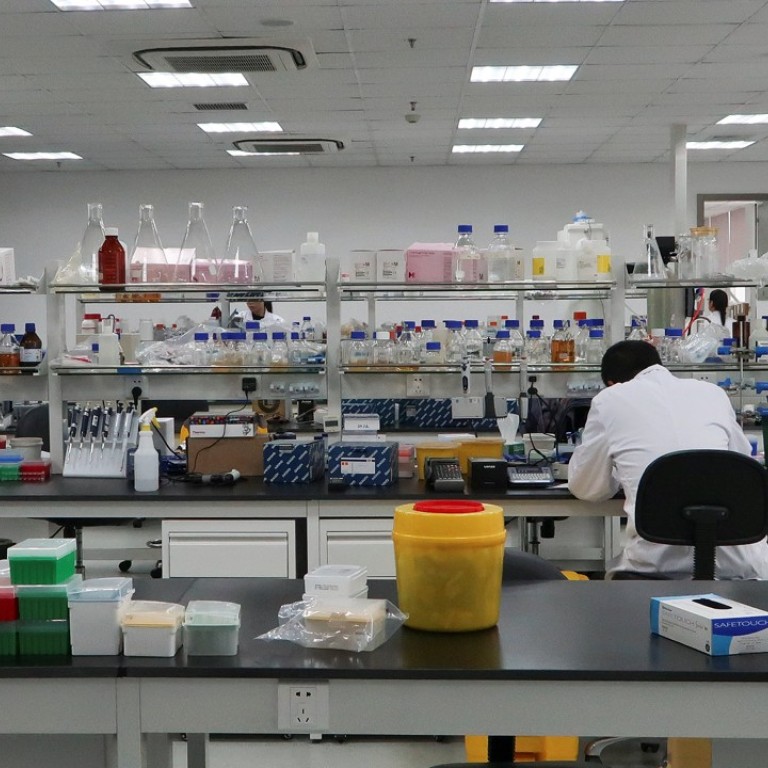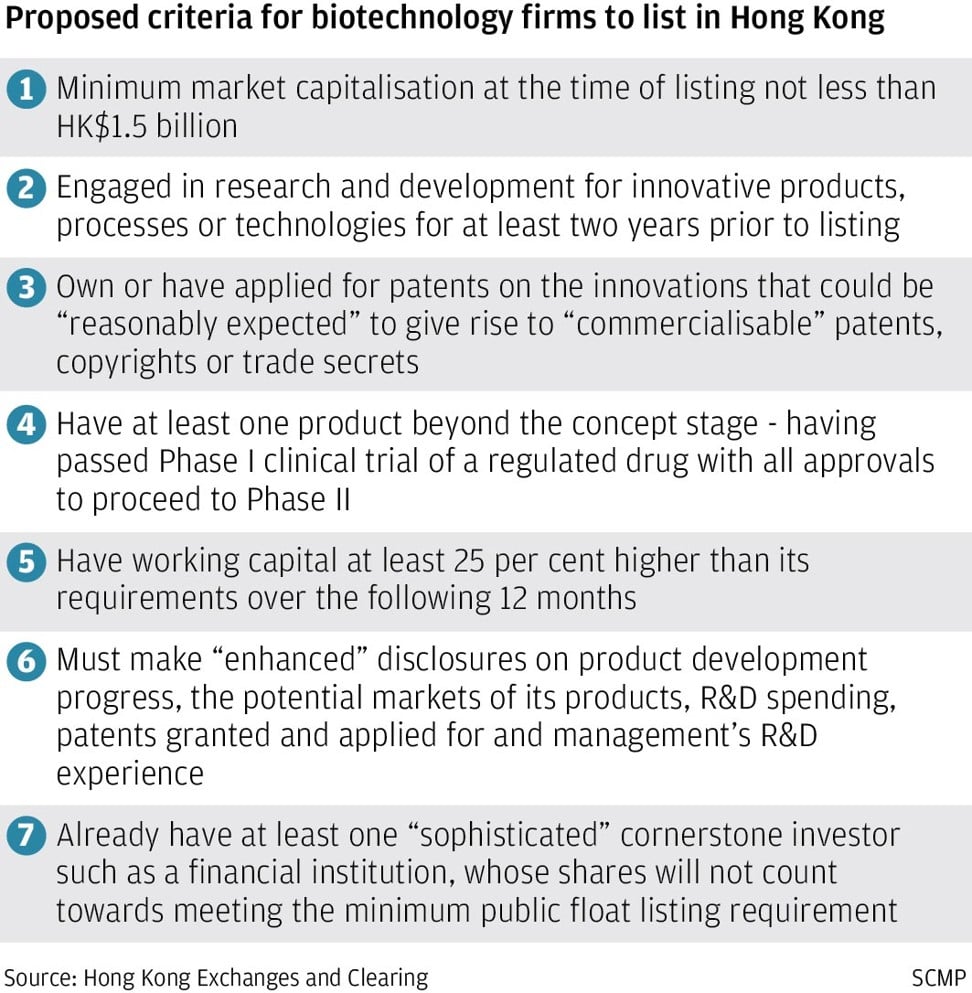
Biotech firms the latest to respond to serenade by city’s bourse to raise capital in Hong Kong
Several biotech companies have contacted Hong Kong professional firms to check on the chance to list in Hong Kong
Earlier this month, Michael Chan and several colleagues flew 11 hours to San Francisco to represent Hong Kong’s stock exchange for the first time at JPMorgan Chase & Co’s global Healthcare Conference, attended by more than 10,000 institutional investors, founders of health care start-ups and industry executives.
Speaking at a panel attended by 200 people, Chan – senior vice-president of issuer services at Hong Kong Exchanges & Clearings Limited, the bourse operator – put forward a pitch for biotech companies to raise capital in Hong Kong.
A month earlier, Hong Kong’s stock market operator and regulator together pushed through an overhaul in the city’s listing regulation to allow technology and biotechnology start-ups to raise capital through initial public offerings (IPOs).
The new rules, which will take effect this year, allow companies with multiple classes of shares – known as weighted variable rights – as well as biotech start-ups valued at more than HK$1.5 billion (US$192 million) that haven’t even earned a revenue or a profit to apply for IPOs in Hong Kong.
“Biotech was chosen as the initial focus in widening market access for early stage companies as the sector tends to be strictly regulated under a regime that sets external milestones on development progress,” the HKEX said in response to queries by the South China Morning Post, adding that the marketing pitch received “overwhelmingly positive response”.
“This helps investors judge the value of companies that do not have traditional indicators of performance, like revenue and profit,” the exchange said.
Since the new rules were announced in December, about two dozen technology start-ups and biotech companies have made inquiries directly through the exchange, or have engaged investment banks and professional consultants to ask about raising capital in Hong Kong. The rules will be subject to a final market consultation after the Lunar New Year in mid-February.
“The market is excited about the new rules and a few biotechnology companies are already in discussions about possible IPO opportunities,” said Christina Lee, corporate partner at Baker McKenzie’s Hong Kong office, who estimated that the city has between 250 and 300 biotech-related companies operating here, of which 70 that have started to generate income are already listed in the city. As mainland China continues to drive the next wave of fundraising activities, Hong Kong could compete for new listings, with the HKEX’s new rules, Lee said.

Biotech companies need to be in operation for at least two years before they can apply to raise capital in Hong Kong. Investors who want to consider these companies need to be aware of the high risks involved in companies with very long payback periods, said PwC’s capital markets services group partner Eddie Wong Kam-chin.
“Biotech companies need a long time - between eight to 10 years - for research, development and testing before they can get the approvals from drug regulators,” said Wong, whose firm had received several inquiries by biotech companies interested to raise capital. “Investors who put money in these companies need to fully understand their investments may take a long term before paying back.”



